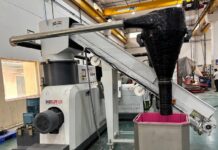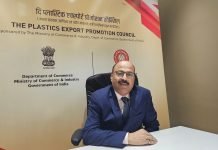Researchers at Queen’s University Belfast have been interviewing people across the region to try to crack the puzzle of why some people recycle and others don’t. The experts carried out 18 in-depth interviews with people living in Northern Ireland during Autumn 2019.
The findings suggest that some of the reasons that people aren’t recycling plastics are being so busy they don’t get round to recycling, they aren’t clear on what can be recycled, and they can’t see the impact that their recycling could have on the environment.
The study was part of a larger interdisciplinary grant ‘Advancing Creative Circular Economies for Plastics via Technological-Social Transitions (ACCEPT Transitions)’ led by professor David Rooney from the School of Chemistry and Chemical Engineering at Queen’s. The researchers are also involved in the ‘Clear on Plastics’ campaign, which is being run by the sustainability not-for-profit organisation WRAP.
Dr Emma Berry from the School of Psychology at Queen’s co-led the project alongside professor Martin Dempster and Dr Debbie Roy. She explains, “In Northern Ireland, people recycle twice as much as they did 15 years ago and 10% of this is plastic. “For many people, recycling has become part of their everyday routine – we have the bins and collection service, so it’s much easier to do now. Most of us also know its ‘good’ for the environment, so we try to follow the guidelines on putting recyclable products in the right bins. However, while most people recycle, some households do not, so it’s important to understand why this might be.”
Following the research, the experts say there are three common barriers to recycling in Northern Ireland. Firstly, some people felt that with such busy lifestyles, family life, and competing priorities, recycling was often simply at the bottom of the daily agenda – it did not feature in their long list of important day-to-day tasks.
Secondly, people felt that with the enormous range of products and materials available in shops, it can also be tricky to know which products can be recycled and in which bin. Likewise, it is not always clear how to recycle some products if they are made up of multiple materials, such as a cardboard sleeve on a plastic yogurt pot, which need to be separated.
The final common barrier reported was that individuals feel that it’s often difficult to see the impact that small actions such as recycling at home or while out and about, can have on the environment, making small efforts feel pointless.
Dr Bronagh Millar from the Polymer Processing Centre at Queen’s was also involved in the project. She says, “Based on our findings, it’s understandable why many people find recycling baffling. The good news is that recycling does not have to be difficult and time consuming and small efforts do make a difference to our local environment and society.
“Taking small actions like recycling at home, not only helps reduce the amount of waste in local landfill and which gets washed up on beaches, but it is also helping our local economy because recycling supports the generation of local industries and jobs. Old and used packaging isn’t waste, it’s material that can be reformed and used to make more of the same packaging or something different.”
An interesting example of this is Cherry Pipes – a company that manufactures the land drainage pipes that are found in new housing developments, road construction, sports stadia and beyond all made from 100% recycled plastic. Recycling at home supports this business and the jobs created there and it will also continue to support economic growth as new businesses are formed and flourish in the sector.
Dr Millar adds, “Recycling at home is the best place to start and it’s where most waste comes from – in fact almost 90% of all waste collected in 2019/2020 came from households! “It’s easy to think that as one individual or family, your recycling won’t make a difference when you feel like loads of other people and companies are not recycling. But if every individual household just increased its recycling even a little bit, it would make a huge difference over time.”
Expert tips to make recycling easier at home
Place a second bin or a ‘bag for life’ beside your general waste bin (this not only makes recycling easier, but it helps remind you/others in your household to recycle).
Use visual and automatic reminders to give you a nudge to recycle e.g., daily/weekly phone reminders and post-its/signs on or around your indoor bins.
Likewise, create visual reminders of what goes where (visit www.recyclenow.com/local-recycling to find out what you can recycle in your area, or check out your local authority website.

When you aren’t sure about whether certain packages can be recycled, look for the on-pack recycling label which is usually on the bottom or sides of packages and tells us what plastics most local authorities accept. As a rule of thumb, tins/cans, cardboard, and most hard plastics can be recycled.











